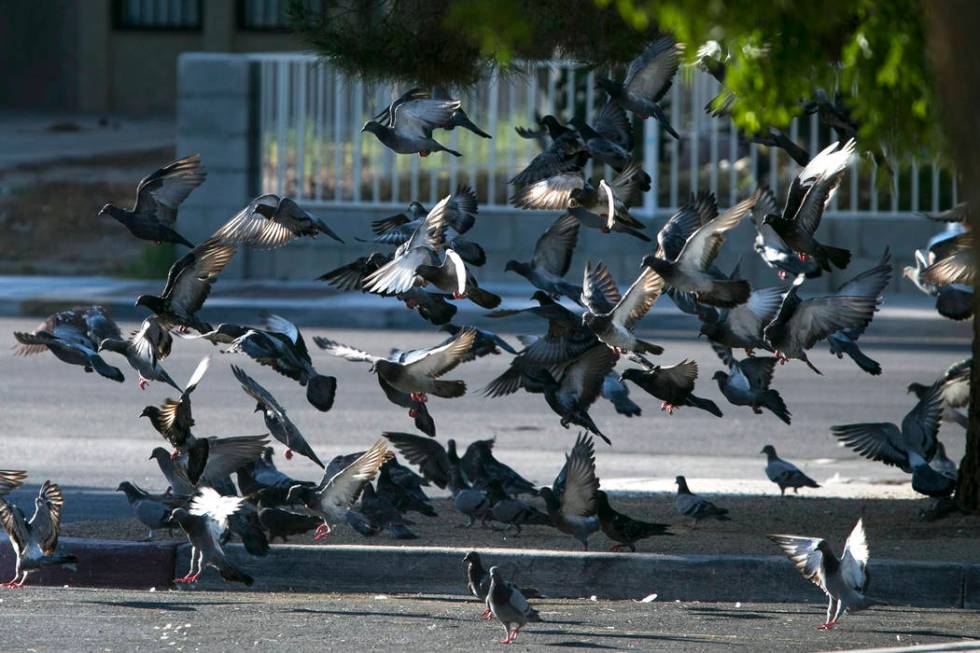Pigeon poop a serious problem for Clark County Commission

If you feed them, they will roost.
And poop. They will definitely poop.
Nesting pigeons and the scat they leave behind have been a perennial and somewhat costly problem for Clark County. Complaints from residents are so common that Commission Chairman Steve Sisolak wants to discuss what can be done during Tuesday’s commission meeting.
“We’ve got a proliferation of pigeons in some of these areas,” Sisolak said. “There’s a lot of property damage as a result of pigeons roosting.”
The bird’s corrosive poop can damage paint, concrete roof tiles and air conditioning equipment. Their nesting material can clog a drainage system. There’s also a concern about the spread of disease from pigeon carcasses and waste.
Chris Bramley, who oversees the county government’s pest control management, said most of the county’s facilities “have some kind of a pigeon issue.” Flocks of 50 to 60 pigeons can be found living on some roofs.
But the problem has become exceptionally noticeable at the West Flamingo Senior Center, supervisor Diane Olson-Baskin said.
Despite the county’s efforts to dissuade the birds from roosting there — including a sonic repellent system — close to 30 pigeons have made the community center home, Olson-Baskin said. She believes the blame lies in some patrons’ delight in tossing piece of bread to the birds every morning.
“We try to discourage people from feeding the pigeons, but they enjoy it so much that all we can do is encourage them to feed them as far as possible from the building,” Olson-Baskin said.
Such is the stuff that makes up the passionate debate over pigeons. While some people see the birds as pests, others love them.
When county commissioners considered a law banning the feeding of feral pigeons in January 2012 they were inundated with opinions from both sides. A majority of commissioners voted against the proposed law.
Bramley said he has a hard time telling people they should not feed the birds. He understands it’s an enjoyable pastime for many.
Still, “if people want to feed pigeons they should feed them in small amounts,” he said. “Don’t let them learn that you’re taking care of them like they’re your children.”
Contact Michael Scott Davidson at sdavidson@reviewjournal.com or 702-477-3861. Follow @davidsonlvrj on Twitter.
A previous version of this story incorrectly stated the commission never voted on a law banning the feeding of federal pigeons.